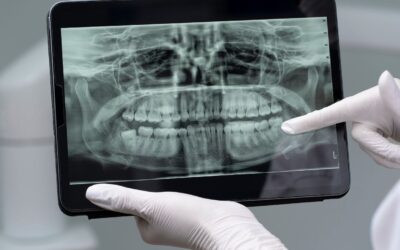Temporomandibular joint disorder (TMJ) can be a source of debilitating pain, affecting the jaw, neck, and head. Many people are unaware that TMJ can also lead to significant tooth pain, causing discomfort that might seem unrelated to the jaw.
In this article, we will explore the causes of tooth pain related to TMJ, the symptoms you should be aware of, and what treatments can help alleviate both jaw and tooth discomfort. Understanding how these two areas are connected can help you find the right course of action for relief.
What is TMJ and How Does it Cause Tooth Pain?
TMJ stands for the temporomandibular joint, a crucial connection between your jaw and skull. This joint allows your jaw to move, making it essential for activities such as talking, eating, and yawning. When this joint becomes misaligned or stressed, it can lead to TMJ disorders that affect both the jaw and teeth.
TMJ disorders often cause jaw pain, headaches, and discomfort in the ear and neck area. However, one symptom that many people overlook is tooth pain. The pressure on the jaw due to misalignment can lead to sensations of pressure, tingling, or pain in the teeth, which might seem disconnected from the jaw itself.
- TMJ causes inflammation in the jaw joint.
- The pressure on the teeth from the jaw misalignment can cause discomfort.
- Clenching or grinding the teeth due to TMJ worsens the pain.
Can TMJ Cause Severe Tooth Sensitivity?
Many individuals with TMJ experience significant tooth sensitivity, especially when consuming hot or cold foods. This happens because the misaligned jaw may put additional pressure on the teeth, especially on the molars, which are crucial for chewing. This pressure can affect the tooth roots and nerve endings, resulting in heightened sensitivity.
Symptoms of tooth sensitivity caused by TMJ:
-
Sudden, sharp pain when chewing or drinking cold or hot beverages.
-
Pain or discomfort that occurs mostly in the morning, especially after clenching or grinding teeth during sleep.
-
General tooth soreness or aching, which can be mistaken for a dental issue.
The Role of Teeth Clenching and Grinding in TMJ Tooth Pain
A common symptom of TMJ is bruxism, or teeth grinding and clenching. People with TMJ may unconsciously grind their teeth during the day or while sleeping, often due to stress or misalignment in the jaw. This excessive pressure can result in tooth pain and discomfort that worsens over time.
Why teeth grinding is a problem:
-
-
It puts direct pressure on the teeth, leading to fractures or wear on the tooth surface.
-
It also contributes to the development of tooth sensitivity and gum recession.
-
Treatment for this issue includes:
-
Wearing a mouthguard to protect teeth while sleeping.
-
Managing stress levels to reduce teeth clenching during the day.
What Are the Most Common TMJ Symptoms Associated with Tooth Pain?
TMJ pain can manifest in several ways. Some of the most common symptoms include:
-
Jaw pain or stiffness: Especially after prolonged talking, chewing, or yawning.
-
Tooth pain or discomfort: Can be a result of misalignment or clenching.
-
Earaches: Often associated with TMJ disorders.
-
Headaches and neck pain: Tension in the jaw can lead to migraines and tightness in the neck muscles.
Understanding these symptoms can help individuals identify the underlying cause of their tooth pain.
How to Treat TMJ-Related Tooth Pain
Treatment for TMJ-related tooth pain can range from simple home remedies to professional dental care. It’s important to treat both the symptoms of TMJ and the pain caused by tooth sensitivity. Here are some common treatments:
-
At-home remedies: Apply warm compresses to the jaw, practice relaxation techniques to reduce clenching, and avoid tough or chewy foods.
-
Dental treatments: Your dentist may recommend a custom mouthguard to prevent grinding and clenching.
-
Physical therapy: Certain exercises can help realign the jaw and relieve pressure on the teeth.
For more severe cases, a visit to a TMJ specialist might be necessary for advanced treatments, such as orthodontics or surgery.
Frequently Asked Questions:
Can TMJ cause tooth pain?
Yes, TMJ can cause tooth pain by putting excess pressure on the teeth and jaw, leading to discomfort and sensitivity.
How can I relieve tooth pain caused by TMJ?
Use warm compresses, avoid hard foods, and consider wearing a mouthguard. You should also consult with a dentist or TMJ specialist for more specific treatments.
Is teeth grinding linked to TMJ?
Yes, teeth grinding is a common symptom of TMJ and can exacerbate tooth pain due to the pressure it puts on the teeth.
Can TMJ cause ear pain?
Yes, TMJ can cause ear pain as the temporomandibular joint is located near the ear canal.
When should I see a dentist for TMJ-related tooth pain?
If your tooth pain persists, worsens, or is accompanied by other TMJ symptoms such as jaw clicking or headaches, it’s time to see a dentist or TMJ specialist for treatment.
Conclusion:
TMJ disorders can lead to a variety of symptoms, with tooth pain being one of the more surprising and often overlooked effects. By understanding the connection between the temporomandibular joint and tooth discomfort, you can better manage your condition and find the appropriate treatment. From teeth clenching to jaw misalignment, there are several ways TMJ can cause pain that extends beyond the jaw itself. If you’re experiencing persistent tooth pain along with other TMJ symptoms, seeking professional treatment can provide much-needed relief.



